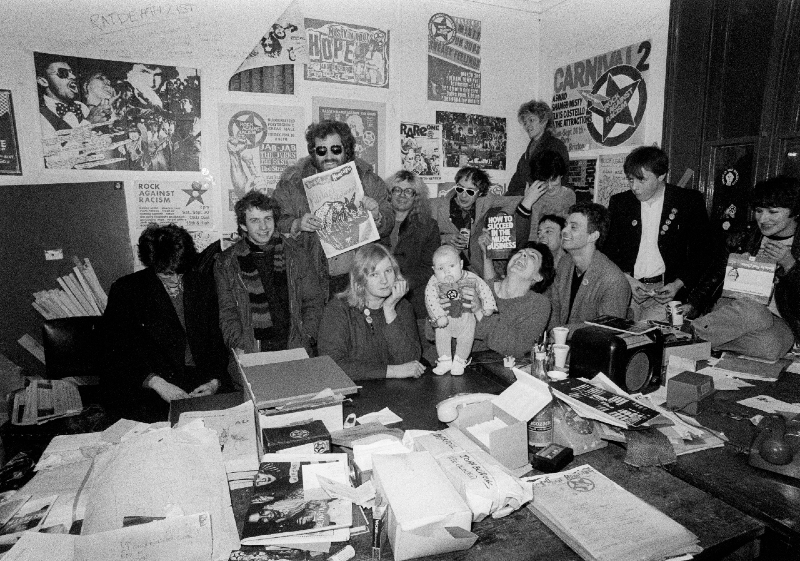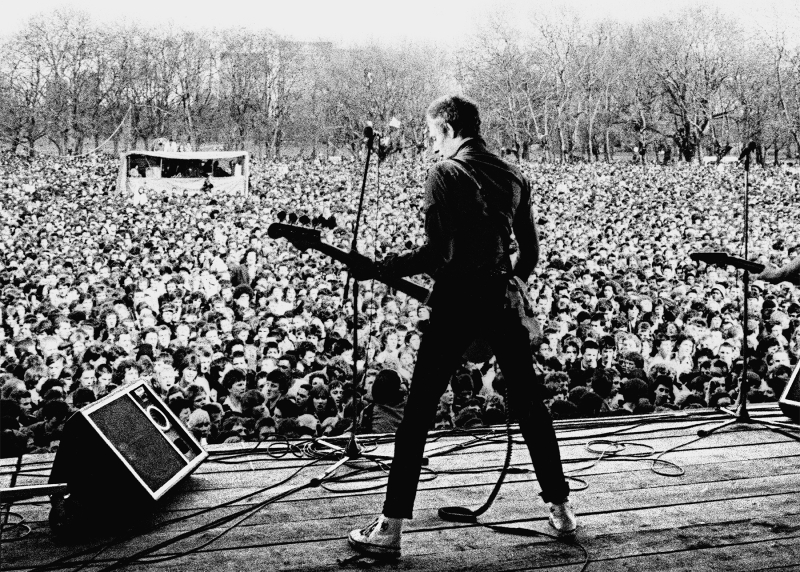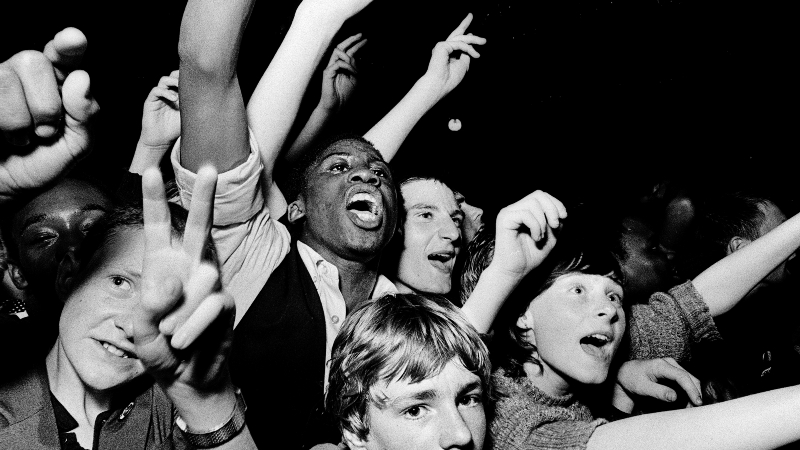Director – Rubika Shah – 2019 – UK – Cert. 15 – 80m
***1/2
Documentary charts the rise of the UK’s Rock Against Racism movement of the late 1970s and features among others The Clash, Steel Pulse and Tom Robinson – in cinemas and on BFI Player and Curzon Home Cinema from Friday, September 18th
Curiously prescient for our own time, the late nineteen seventies saw the rise of the far right movement in Britain characterised by the National Front and its desire to send all non-white British residents “back where they came from”. One of the other things that happened at that time in the UK was in the seemingly unrelated area of music: punk rock. Something clicked for photographer Red Saunders when the NME dispatched him to shoot Punk Night at London’s ICA venue. He saw an immediacy and an energy to what was going on, with bands the The Clash singing about social issues such as unemployment.
Fuelled by some ill-advised, vaguely Teutonic sentiments from David Bowie and, more specifically, a gig where guitarist Eric Clapton encouraged people to go and vote for racist MP Enoch Powell and everything he represented, Saunders set up the Rock Against Racism (RAR) movement to bring together youth from the UK’s various different ethnic backgrounds. Live music was the catalyst and gigs would deliberately feature black and white bands on the same bill as a means to breaking down the fear that existed between ethnic groups with no experience of or previous contact with one another.

Operating out of a small office in London’s East End, staffed by ‘Irate’ Kate Webb – the daughter of a US civil rights activist and a journalist who’d covered the Prague Spring – Saunders and others successfully set up a support network of anyone interested in promoting music gigs to stand against the ideals of the far right, offering helpful advice and instruction to anyone who wanted to get involved.
1977 saw the National Front heavily on the ascendant, with the movement picking up almost 20% of the vote in the two East End London constituencies of Hackney South and Bethnal Green And Bow in the GLC (Greater London Council) elections. To show that huge numbers of people were against the far right, RAR in conjunction with another organisation, the Anti-Nazi League, set up a march from Central London’s Trafalgar Square to the East End’s Victoria Park where a number of bands would play in support. These included reggae band Steel Pulse, punk bands X-Ray Specs and The Clash and new wave outfit The Tom Robinson Band, the latter a long time supporter of RAR and seen as the sort of performer who could encourage attenders to disperse peacefully at the end of the night.
There was some concern on the part of the organisers as to whether serious numbers would show up for either the march or the gig, but in the end huge coachloads descended upon Trafalgar Square from all ends of the country. This being decades before either the internet or the smartphone, as the peaceful protest made its way toward Victoria Park, those at the gig site were not aware of the numbers and by midday had not seen more than half a dozen people in the park.
Shortly after that, the crowds started to arrive in the middle of the day, dwarfing the conservative estimates of numbers given to the local council. Robinson notes that the PA was unsuitable for the numbers and the sound was awful, but just being there was the thing, while Steel Pulse were delighted to be accepted by a mass white audience some 80 000 strong.

The subsequent 1979 general election saw the National Front defeated.
The film is a well put together and extremely watchable, social and musical document of the period. Much use is made of basic, fanzine-style, animated graphics to tell the story. That works well and seems highly appropriate.
In terms of where the UK is today, with not only the far right on the ascendant on the political fringes but also, more worryingly, in power in the heavily right wing variant of the current Conservative government, it’s also a timely reminder that wherever we disagree with the direction of our government, we need to stand up and be counted. As well as its value as a document of socio-cultural history, it thus also works as an essential piece of agitprop. Better still, the music remains impressive to this day and the film is hugely entertaining.
White Riot is out in cinemas and on BFI Player and Curzon Home Cinema in the UK on Friday, September 18th.
Trailer:
